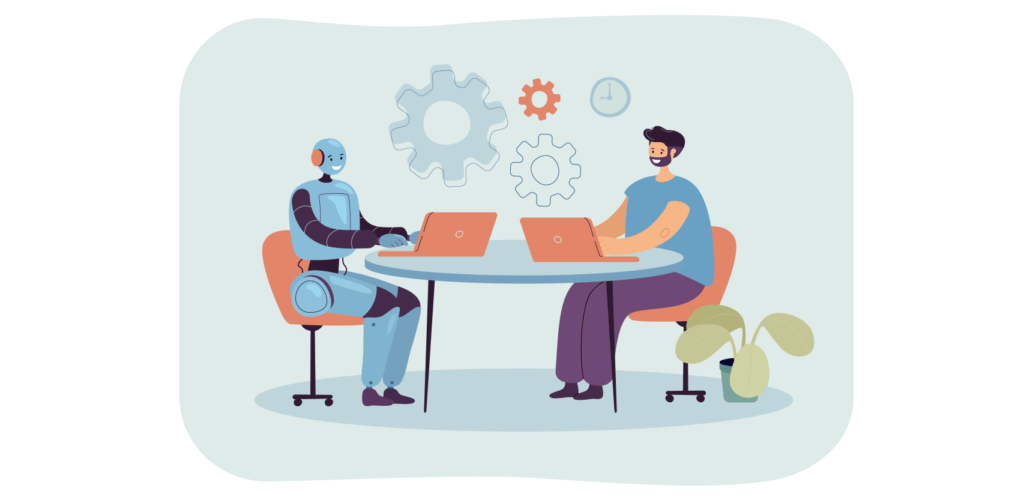How Generative AI in HR Solution Transforms Employee Experience
The rapid evolution of artificial intelligence (AI) is reshaping industries worldwide, and Human Resources (HR) is no exception. Among the most transformative technologies in HR today is generative AI. By automating repetitive tasks, personalizing employee interactions, and improving decision-making processes, generative AI is revolutionizing how organizations engage with their employees. Here, we delve into how this innovative technology is enhancing employee experience and creating smarter workplaces.

Personalizing Onboarding Processes
One of the most significant ways generative AI is improving the employee experience is by personalizing onboarding. Traditional onboarding often relies on generic training modules and standardized communication, which may fail to address individual employee needs. Generative AI, however, can create tailored onboarding content based on the role, skill set, and career aspirations of the new hire.
For example, AI-powered virtual assistants can answer specific questions about company policies, suggest learning materials, and guide new employees through their first weeks. This personalized approach not only accelerates the onboarding process but also ensures employees feel welcomed and valued from day one.
Enhancing Employee Engagement
Generative AI tools can boost engagement by providing real-time feedback, personalized career development plans, and continuous learning opportunities. By analyzing employee performance data, AI can recommend training programs or workshops tailored to individual needs. Chatbots powered by generative AI can also facilitate two-way communication, allowing employees to voice concerns, seek advice, or request support without delays.
For instance, an AI-driven platform could suggest specific courses to help an employee develop skills relevant to a promotion they’re seeking. By fostering a culture of growth and open communication, companies can significantly improve employee satisfaction and retention.
Streamlining Administrative Tasks
HR departments often struggle with the volume of repetitive tasks such as scheduling interviews, processing leave requests, and managing payroll queries. Generative AI can automate these administrative duties, freeing up HR professionals to focus on strategic initiatives.
For example, AI-powered systems can quickly generate employment contracts, design shift schedules, or create reports summarizing workforce analytics. By reducing the administrative burden, HR teams can dedicate more time to enhancing employee relations and building a stronger organizational culture.
Enabling Proactive Workforce Management
Generative AI can analyze vast amounts of employee data to identify patterns and trends that might otherwise go unnoticed. This capability enables HR teams to proactively address potential issues such as declining engagement levels, burnout risks, or skill gaps.
For example, predictive AI models can flag employees who might be at risk of leaving based on factors like declining productivity or lack of engagement. HR can then intervene with targeted measures, such as offering mentorship programs, flexible working options, or tailored incentives.
Facilitating Diversity, Equity, and Inclusion (DEI)
Generative AI can play a pivotal role in advancing DEI initiatives by mitigating unconscious bias in recruitment and performance evaluations. AI algorithms can craft inclusive job descriptions, screen candidates objectively, and ensure fair representation during the hiring process.
Additionally, AI can generate reports that highlight diversity metrics, helping organizations track progress and identify areas for improvement. By creating a more equitable workplace, companies can foster an environment where employees feel respected and empowered.
Real-Time Feedback and Continuous Improvement
Feedback is a cornerstone of employee experience, and generative AI makes it more immediate and actionable. AI tools can analyze employee feedback from surveys, chat logs, and other communication channels to provide actionable insights in real time.
For instance, sentiment analysis tools can gauge employee morale, while generative AI can recommend initiatives to address concerns or improve engagement. This continuous feedback loop ensures that employees feel heard and valued, leading to higher satisfaction levels.
Conclusion
Generative AI is not just a tool for automation; it’s a game-changer for how HR interacts with and supports employees. From personalized onboarding to proactive workforce management, this technology empowers organizations to create a more engaging, inclusive, and supportive environment for their teams. As Generative AI in HR solution continues to evolve, its potential to transform the employee experience will only grow, enabling businesses to thrive in a competitive, talent-driven world.